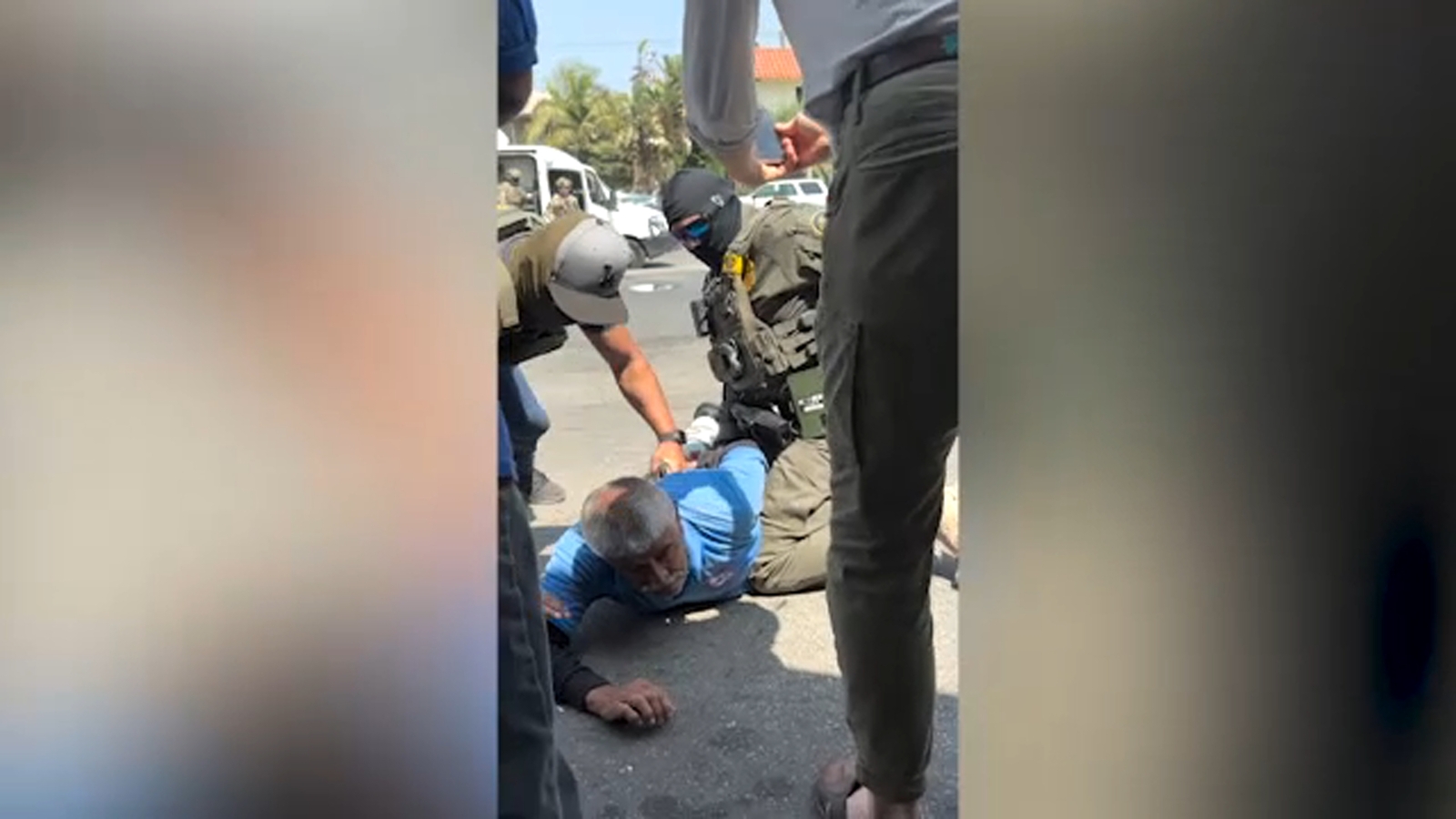Why Did Border Patrol Arrest a Man at a Culver City Car Wash?

Understanding Recent Border Patrol Encounters and Their Legal Implications
The recent incident involving U.S. Customs and Border Protection (CBP) agents taking a man into custody at a car wash near Culver City has reignited discussions around immigration enforcement and the legal frameworks governing such actions. The video captured at Handy J Car Wash shows masked agents apprehending the individual, sparking reactions from bystanders who voiced their concerns. This situation raises important questions about the rights of individuals during immigration enforcement operations and the legal standards that govern them.
The Incident: A Closer Look
On a seemingly ordinary day at the Handy J Car Wash, a routine car wash turned into a scene of tension and confusion. Witnesses reported seeing CBP agents in masks apprehending a man and forcibly taking him to unmarked vehicles. Eyewitness reactions were immediate, with onlookers shouting for the agents to stop. Such confrontations often leave bystanders feeling uncertain about the legality and morality of the actions being taken.
Legal Context of Immigration Enforcement
Immigration enforcement in the United States operates under a complex web of federal and state laws. The Fourth Amendment protects individuals from unreasonable searches and seizures, which is particularly relevant in cases of immigration raids and detentions. A federal judge recently issued a temporary restraining order that prevents agents from stopping individuals without probable cause, highlighting the legal protections that should theoretically be in place.
Understanding the Fourth Amendment
The Fourth Amendment of the U.S. Constitution is designed to safeguard citizens from arbitrary governmental actions. It states that individuals have the right to be secure in their persons, houses, papers, and effects against unreasonable searches and seizures. This legal framework is crucial for ensuring that individuals are not detained without just cause, a principle that has been emphasized amid rising tensions regarding immigration enforcement.
Temporary Restraining Order: Implications for Immigration Raids
The temporary restraining order issued by the federal judge is significant in that it seeks to uphold the rights of individuals during immigration enforcement actions. The order not only prohibits detentions that violate the Fourth Amendment but also mandates that individuals have access to legal counsel upon detention. Such measures are essential for protecting the rights of those who may be affected by immigration policies.
The Role of the 9th Circuit Court of Appeals
Following the federal judge's ruling, the federal government appealed the decision to the 9th U.S. Circuit Court of Appeals. However, the three-judge panel declined to stay the ruling, affirming the need to protect individual rights during immigration enforcement actions. This decision is a critical moment in the ongoing debate about immigration law and enforcement practices in the United States.
The Path to the U.S. Supreme Court
The federal government's appeal to the U.S. Supreme Court signifies the high stakes involved in this case. The outcome could have far-reaching implications for immigration enforcement across the country. A ruling in favor of the federal government could potentially undermine the protections established by the temporary restraining order, while a ruling in favor of the plaintiffs could reinforce the necessity of protecting individual rights in immigration matters.
Community Reactions and Concerns
The incident at the car wash has prompted various reactions from the community, particularly regarding the methods used by CBP agents. Many community members express concerns about the aggressive tactics employed during immigration enforcement operations. The apprehension of individuals in public spaces, such as a car wash, raises questions about the appropriateness of such actions and the potential for racial profiling.
Calls for Reform
In light of incidents like the one in Culver City, advocates and community organizations are calling for reform in immigration enforcement practices. The demand for transparency and accountability is growing as communities seek to understand the rationale behind such operations. Many emphasize the need for policies that prioritize human rights and dignity over aggressive enforcement tactics.
What Lies Ahead for Immigration Enforcement?
The future of immigration enforcement in the United States remains uncertain, particularly in light of ongoing legal battles and community pushback. As courts continue to weigh in on the legality of various enforcement practices, the landscape of immigration law may evolve significantly. Stakeholders on all sides of the issue are closely monitoring these developments, as they could reshape the relationship between law enforcement and immigrant communities.
Potential Outcomes of Legal Proceedings
As the case progresses through the judicial system, several potential outcomes could emerge:
- Reaffirmation of Individual Rights: A ruling that upholds the temporary restraining order could reinforce the rights of individuals during immigration enforcement actions.
- Changes to Enforcement Practices: If the courts mandate changes to how immigration enforcement is conducted, this could lead to more humane treatment of individuals.
- Increased Community Engagement: Ongoing legal battles may prompt more communities to engage in advocacy efforts to protect immigrant rights.
Frequently Asked Questions
What are the rights of individuals during immigration enforcement actions?
Individuals have the right to be free from unreasonable searches and seizures under the Fourth Amendment. They also have the right to legal counsel upon detention, as established by recent court rulings.
What is the significance of the temporary restraining order?
The temporary restraining order prevents immigration enforcement actions that violate the Fourth Amendment and ensures that detained individuals have access to legal representation, thereby protecting their rights.
How can the community respond to immigration enforcement actions?
Communities can respond by advocating for reform, raising awareness about individual rights, and supporting organizations that provide legal assistance to those affected by immigration policies.
Conclusion: The Future of Immigration Enforcement
The recent events surrounding the apprehension at Handy J Car Wash illustrate the complexities of immigration enforcement and the critical importance of upholding individual rights. As legal battles unfold and communities respond, the dialogue around immigration policy continues to evolve. The outcomes of these proceedings will not only impact the individuals directly involved but could also reshape the landscape of immigration enforcement in the United States for years to come.
How do you think the legal landscape surrounding immigration enforcement will change in the future? Will communities become more engaged in advocating for immigrant rights, or will the status quo prevail? #ImmigrationLaw #BorderPatrol #CommunityAdvocacy
Published: 2025-08-13 04:51:51 | Category: Trump GNEWS Search



